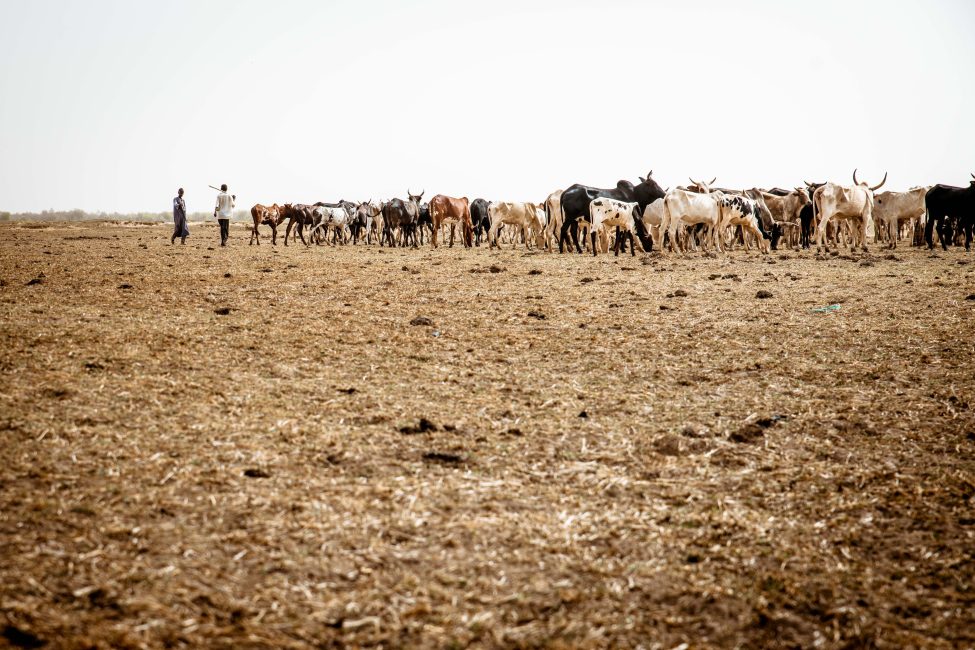Pastoralism offers a means of subsistence for more than 500 million people around the world. In Burkina Faso, where we have been active since 2005, it is the way of life shared by a large proportion of the population. Pastoralist livestock keepers are specialists in the optimal use of grasslands and key players in the fight against climate change and the preservation of biodiversity.
As they move around with their herds, pastoralists fertilise the soil, disperse seed and allow the grass to grow back. The rangelands on which their herds graze have an enormous capacity to sequester carbon dioxide, thus storing it in the soil for centuries rather than releasing it to heat the atmosphere.
For pastoralism to be able to thrive and deliver its precious services to the ecosystem, however, it does require a favourable context. This is becoming increasingly difficult in Burkina Faso, as Hamado Ouedraogo, our country director based in Ouagadougou, explains.
Here in Europe, when we think about livestock keeping in the Sahel and the constraints faced by livestock keepers, our first thought tends to be climate change and food insecurity. Is that a realistic picture?
Hamado Ouedraogo: “Contrary to what you might think, climate change and food insecurity are not the main threats to pastoralism. In fact, it is an extremely resilient way of life, and the Fula pastoralists (the majority of pastoralists in Burkina Faso, also called Fulani or Fulɓe in English, ed.) have an immense capacity to bounce back and recover from setbacks. In a way, the same applies to the pastures themselves, which always regenerate themselves after a drought.
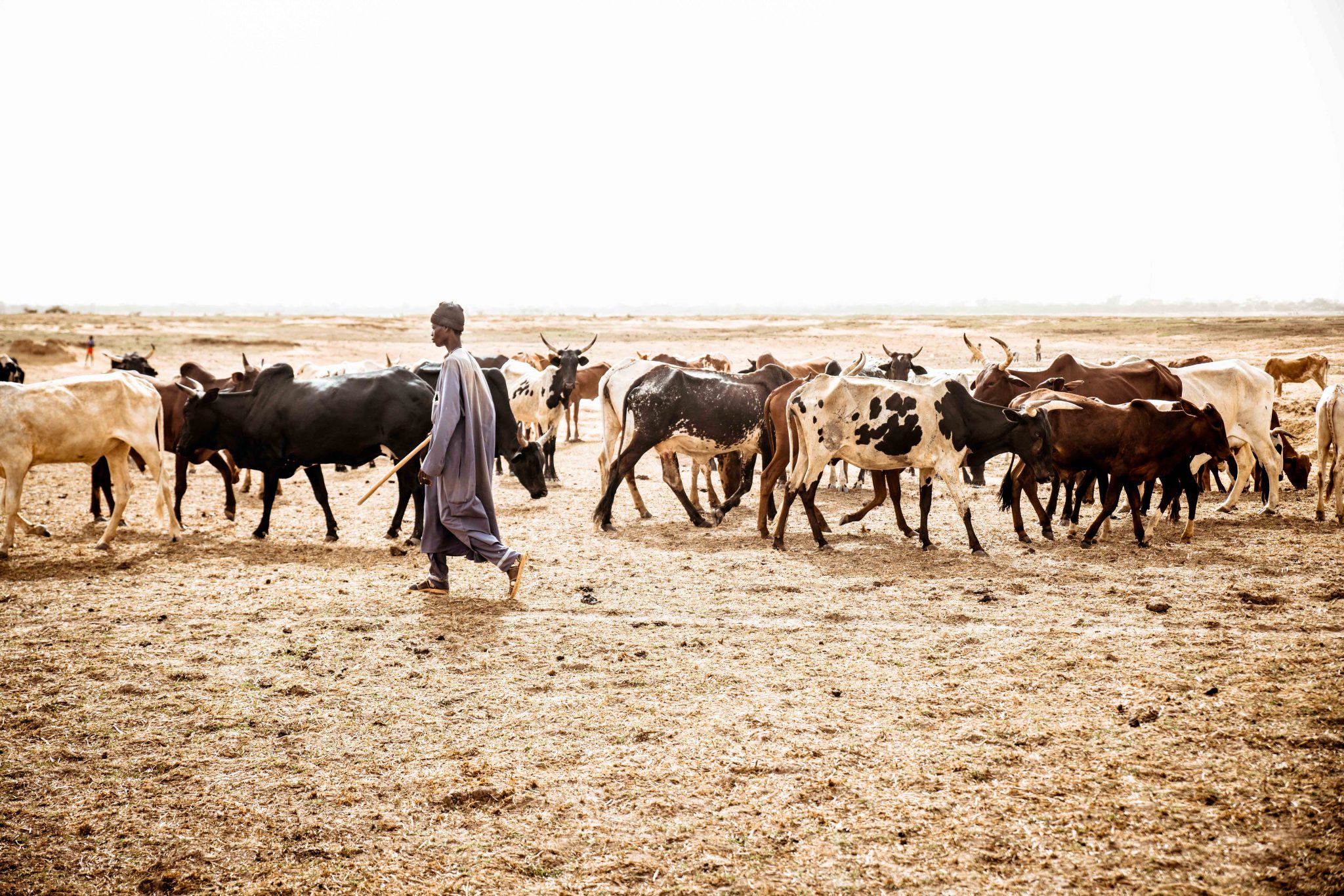
Herd mobility is essential for Burkina Faso’s livestock farmers and guarantees their food security. © Wouter Elsen
The reason the pastoral production system is so resilient is because it is based on mobility, enabling it to adapt to variations in climate. When a drought begins in one place, the livestock keepers and their herds move on until they find water and fresh grass. If they notice the capacity of the grasslands is insufficient in one place, they don’t wait until the resources are exhausted before moving on. If there is nothing for their animals to eat, they will not be able to put on weight or bear young, which is going to cause problems in the long term.
So moving around is crucial to good production. If nothing prevents the livestock keepers from moving, this way of life copes with the problem of famine, because there will be plenty of milk and young animals that people can sell to buy grain and other staple food products. Among the Fula, then, productive livestock keeping is enough to meet the nutritional needs of an entire family. It protects them from the insecurity and famine that may affect other, more sedentary, populations.”
In spite of everything, though, the outlook is not rosy for transhumant livestock keepers at present. What is currently making life difficult for these livestock keepers in the region, and specifically in Burkina Faso?
“There are three existential threats to pastoralism in Burkina Faso today. The main problem is that the government lacks understanding of the benefits of pastoralism. It does not see the economic contribution that pastoralism makes, and agricultural and livestock-keeping policies generally favour sedentary lifestyles. The whole system is designed to confine livestock keepers and their animals to economic development zones, which is not the solution.
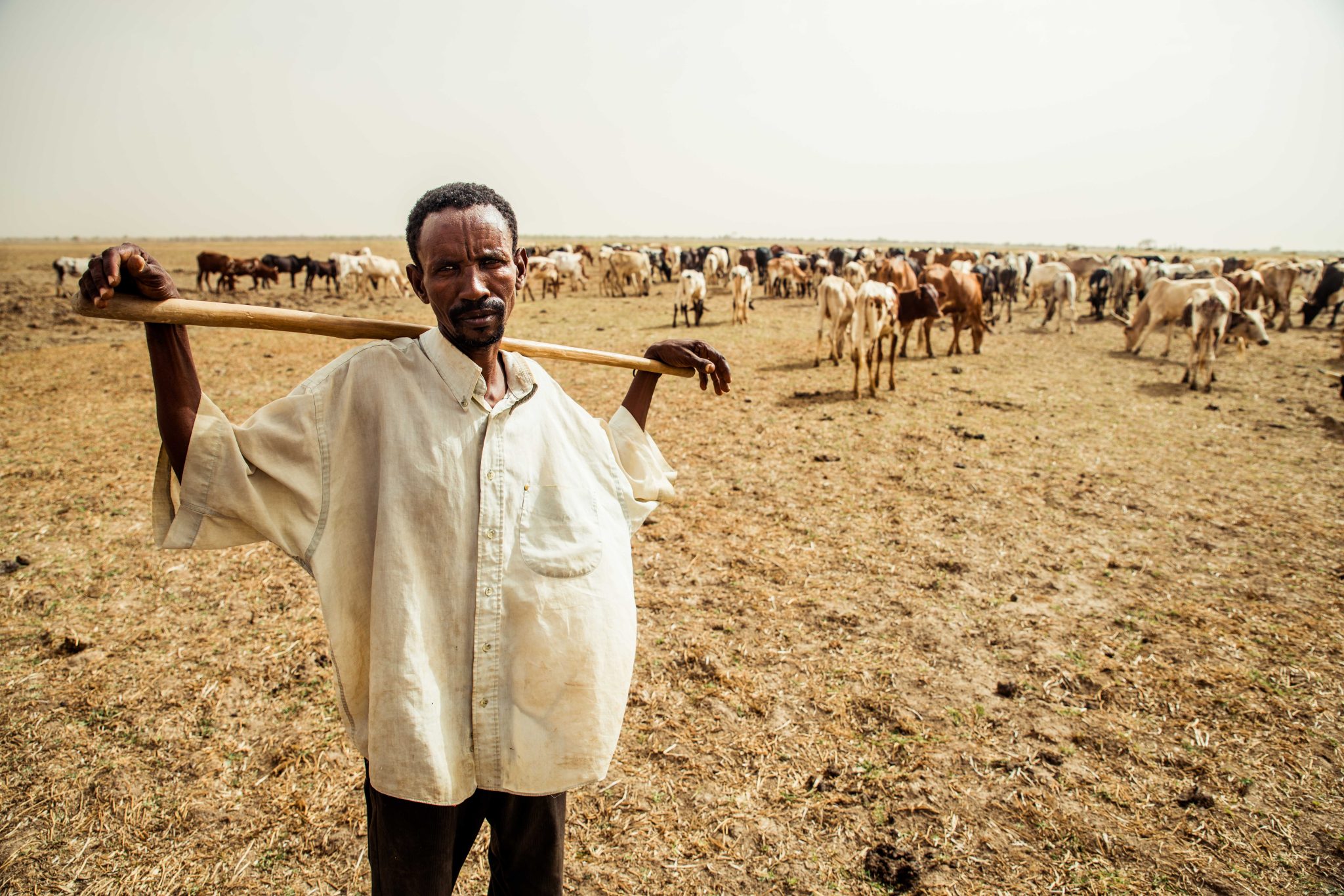
Livestock farmers in Burkina Faso suffer from a lack of recognition of their way of life by the state. The land on which they graze their livestock does not belong to them, and the presence of armed groups makes their mobility even more difficult. © Wouter Elsen
This brings us to a second problem, the question of land ownership, which is a challenge all over the world. All livestock-keeping families are faced with this problem, whether they are in Europe, America or Africa. The land does not belong to them, which is a significant issue when the government does not make policies in their favour or invest in infrastructure for them. In Burkina Faso, we are also witnessing a rapid expansion of urban areas and demographic growth of agricultural farmers. All this has a detrimental impact on the space available for pastures and livestock keepers. The pressure of land ownership in the countryside is becoming increasingly acute. The areas where livestock keepers used to go are being taken over by homes and towns, making them inaccessible to the herds. All this is exacerbated by insecurity, a major challenge in the Sahel, because the presence of armed groups reduces mobility even further.”
What we tend to forget is that this situation is contributing to climate change.
“Exactly, because the failure to exploit natural resources contributes to climate disruption. If the vegetation in an area of grassland is not grazed for three or four years, it will stop regenerating. The soil will be permanently depleted. As we know, vegetation contributes to the rain cycles, so this will have an impact on rainfall in the area and water reservoirs. When water stagnates, it becomes a breeding-ground for disease… If you stop using a pastoral resource, the result is disastrous for the environment and, over time, for all of our health. In the Sahel, there are many places that are not used or no longer used: the grass is drying out, the land is becoming barren, and so on. That is the other side of the coin.”
We mentioned insecurity. If livestock keepers are marginalised and forced to change their livelihood, isn’t there a risk of them joining armed groups?
“When we force livestock keepers to adopt sedentary lifestyles, they need land where they can keep their livestock and grow crops. But the land belongs to agricultural farmers. Even if they give some of it to the livestock keepers, if there is no space available for their herds, the animals will trample the crops. And that leads to conflict. The situation can degenerate fast, and the livestock keepers find they are forced to leave. Sometimes they are even killed. Armed groups are aware of this situation and take advantage of it by suggesting to disenfranchised young people that they join the groups to take revenge. This is how Fula youth becomes radicalised. It might all start with a small conflict, but the violence escalates. It is all a question of land.”
What is Vétérinaires Sans Frontières Belgium doing to support livestock keepers in situations like these?
“In Burkina Faso, we intervene at various levels to support the pastoral way of life. Firstly, we try to prevent conflict by raising awareness. We set up local peace committees that bring together young people and women from all social classes. Their role is to make the rest of the community aware of social cohesion and to act as interlocutors between the livestock keepers and agricultural farmers. We also organise peace caravans that go from village to village to spark dialogue. We connect them with communities, official bodies, and technical support services. Our objective is to bring about a shared understanding of how conflicts arise, their consequences and how they can be prevented. We also reiterate the principles of the law, specifically on the management and use of resources, and the penalties that exist. It is an open-hearted discussion accompanied by advice.
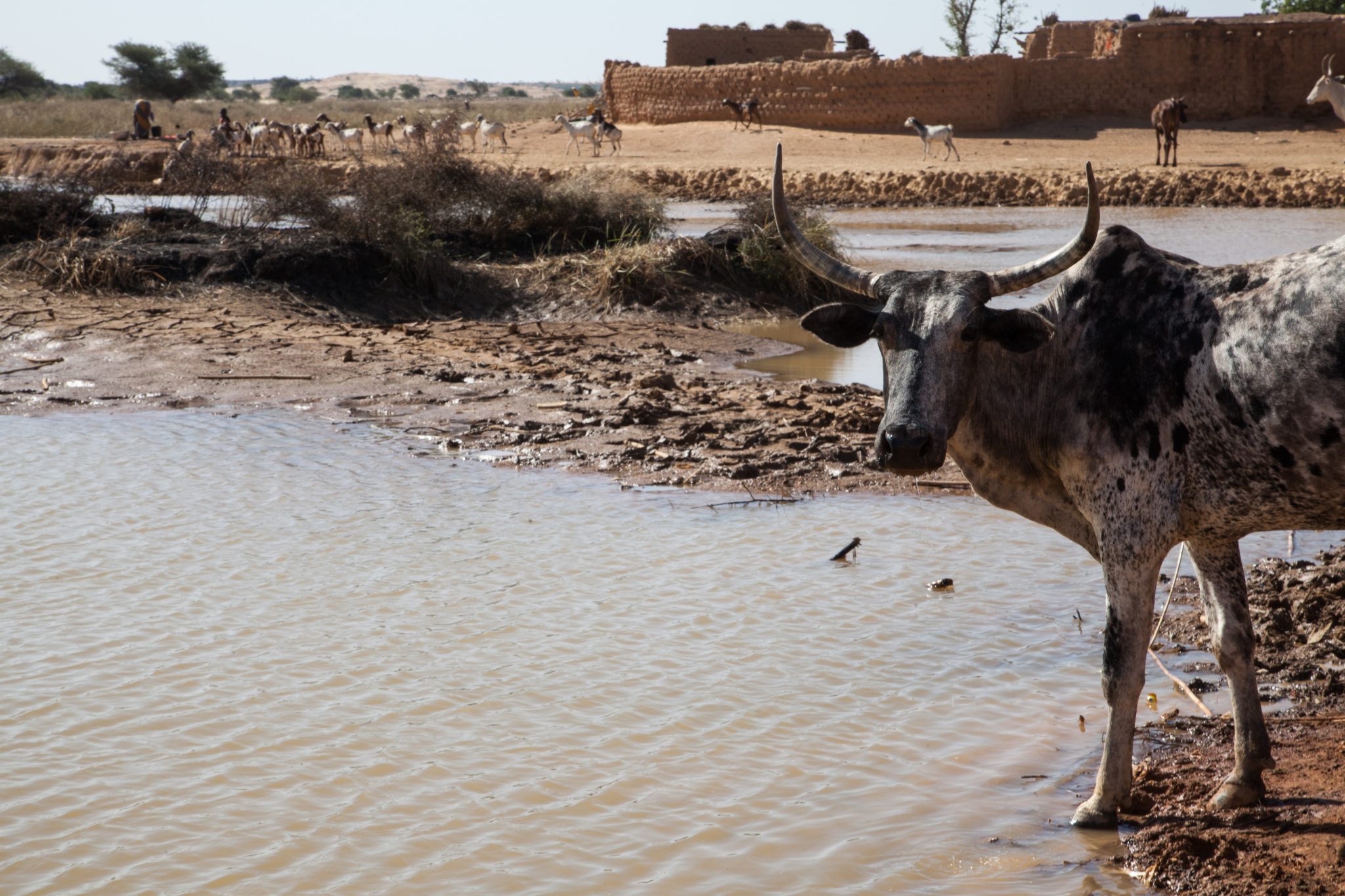
To improve social cohesion between livestock breeders and farmers, Vétérinaires Sans Frontières Belgium is helping communities to establish rules for the joint management of natural resources, particularly water points. © Martin Demay
We also offer social engineering and intermediation activities. The goal is to identify the shared resources in a place, including watercourses, lowlands, boulis – a Burkinabè irrigation system – and pastures. Shared rules for their use and management are established between all the stakeholders, both livestock keepers and agricultural farmers. Then these rules are set down in land use charters that everybody is expected to comply with.
Lastly, in more concrete terms, we create facilities to improve access to water and secure the routes taken by the herds. This includes the creation or restoration of boreholes and pastoral wells and marking livestock routes. To encourage the regeneration of grasslands, we also take action to recover land.”
More than two million people in Burkina Faso have been displaced by violence and insecurity. There are many livestock keepers among them who have lost everything and have to start all over again. What is the added value that Vétérinaires Sans Frontières Belgium brings in terms of aid to these populations?
“In Burkina Faso, the main cause of forced displacement among agro-pastoralist families are attacks by armed groups. They turn up in a village and present the residents with an ultimatum: everyone has to leave within two days. That causes chaos. Imagine 50 to 70 households, each with six or seven members, all trying to get away at the same time. In general, they manage to take the strongest animals with them, especially small ruminants (sheep, goats, etc.), but not the larger livestock.
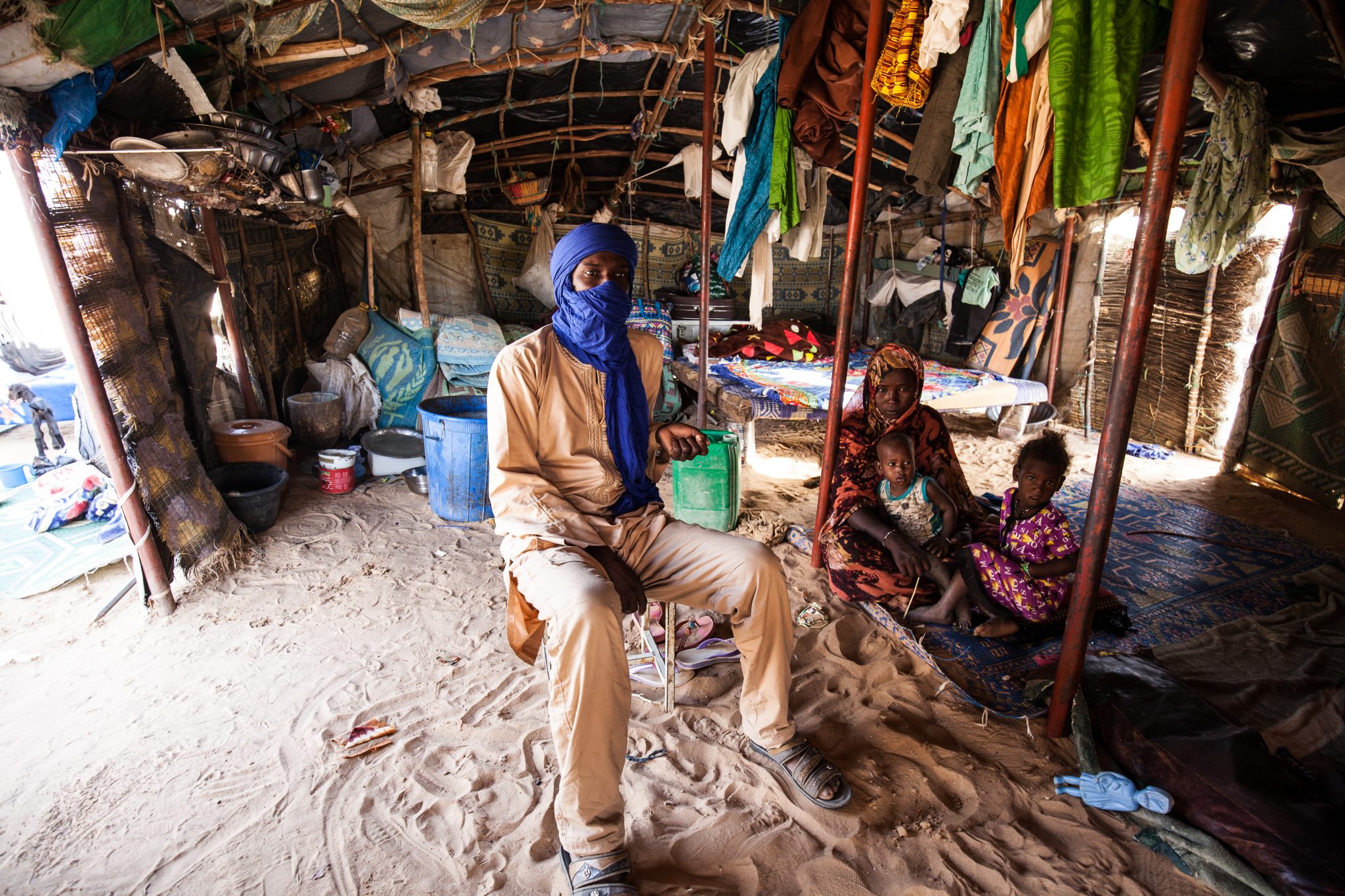
The climate of violence in the Sahel is forcing many Burkinabe families who live from livestock onto the road to exile. Vétérinaires Sans Frontières Belgium cares for their livestock and gives them the means to start afresh as part of its humanitarian activities. © Martin Demay
When these families arrive in the host communities, their animals are as exhausted as they are. They are hungry and thirsty. The displaced people leave them on the outskirts of the host village to avoid crossing people’s homes. In general, the traditional response of humanitarian groups is to focus mainly on human lives. The herds are forgotten. In fact, very rapid intervention is needed to avoid the loss of all the livestock. This is crucial to the recovery of the populations, because these animals represent the productive capital that will guarantee them a future.
That is where Vétérinaires Sans Frontières Belgium has particular value as a specialist in livestock keeping. Right from the emergency phase, we ensure that the needs of animals are taken into account. So we intervene to assess the animals’ needs while other humanitarian stakeholders assess the needs of the populations. Later, we support livestock keepers in reconstituting their productive capital by helping them restart production and extract a long-term income from it.”
Finally, let’s come back to pastoralism. 2026 will be the International Year of Rangelands and Pastoralists. What are Vétérinaires Sans Frontières Belgium’s demands?
“Rangelands and pastures represent 54% of the world’s land and offer a means of subsistence for more than 500 million people around the world. However, these landscapes are the most threatened and least protected ecosystem on the planet. The global challenge for the International Year of Pastoralism is, above all, to recognise the importance of rangelands and pastoralists.
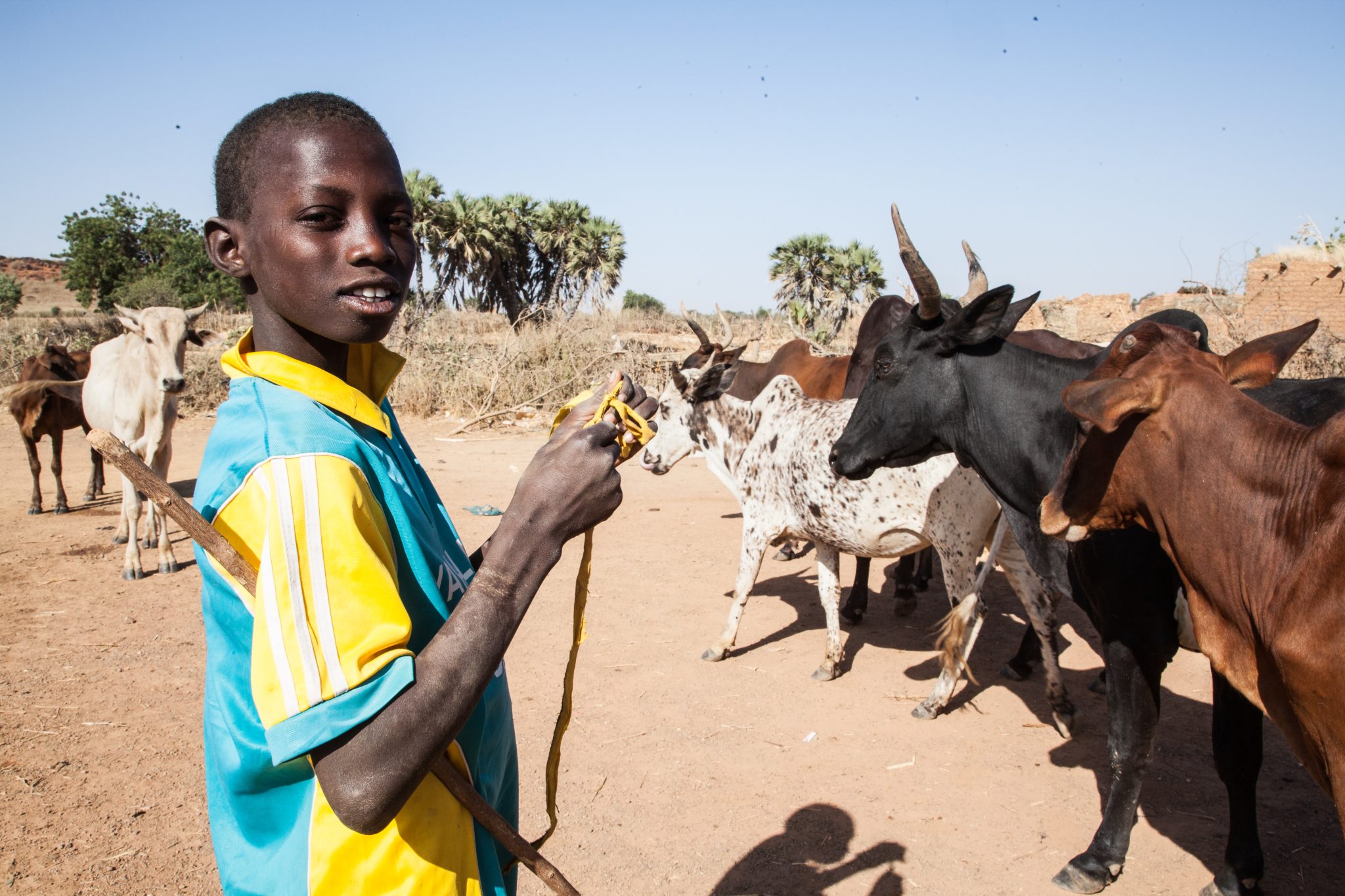
In Burkina Faso, many livestock farmers are unaware of the laws that exist in their favour. In many cases, they are not applied. © Martin Demay
In the context of Burkina Faso, we have demands on two fronts. Firstly, we are fighting for the enforcement of law texts that acknowledge pastoralism and pastoral land rights, which are threatened by industrial agriculture. The legislation applicable to pastoralism recognises that rangelands are a threatened landscape in need of protection, that the rights of usage belong to pastoralists, and that rangelands need to be managed. However, even the livestock keepers are not aware of these laws, and they are not enforced.
Secondly, we are asking for greater investment in the management of pastures and rangelands. There are fewer and fewer of them, whereas the government should be investing in restoration of the soil, building dams, creating wells and boreholes for pastoralists, and so on. At present, the infrastructure is completely derelict. In September 2023, Vétérinaires Sans Frontières Belgium restored three pastoralist wells in Yagha province that were no longer used at all. This is an area that is difficult to access because it is under blockade, and so the population is very isolated and vulnerable. Thanks to this infrastructure, local people now have access to drinking water again, for themselves and their livestock. This is the kind of investment we need to save pastoralism.”

